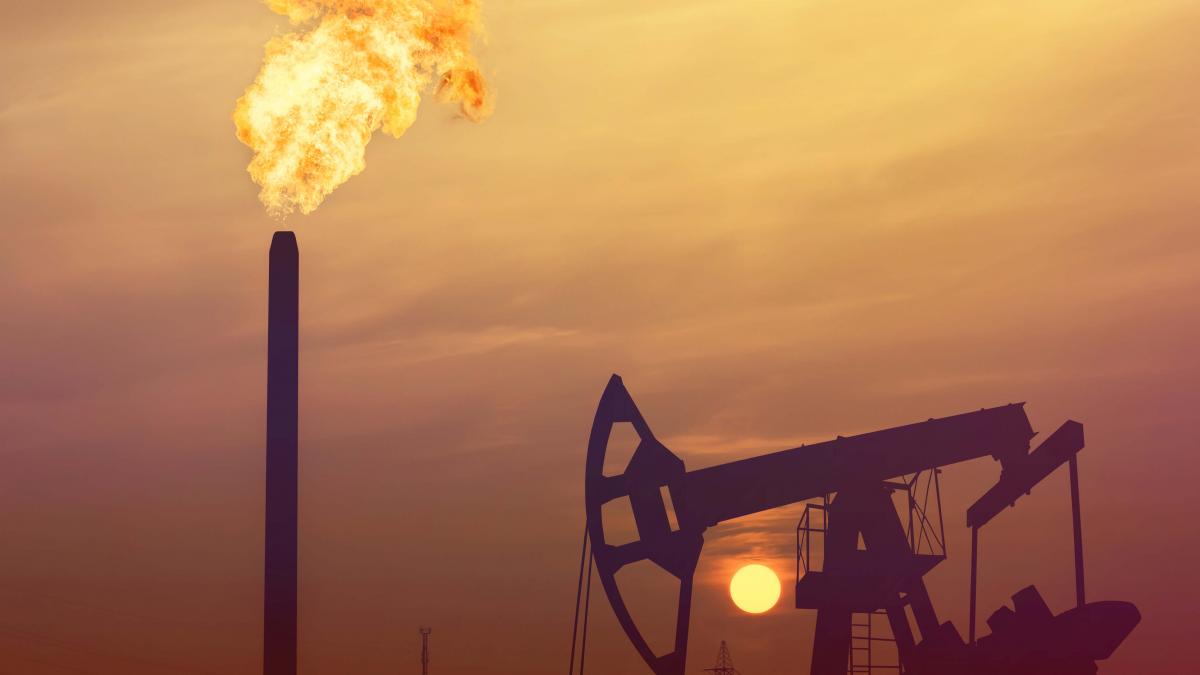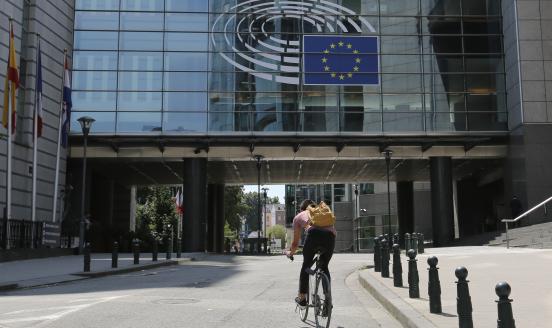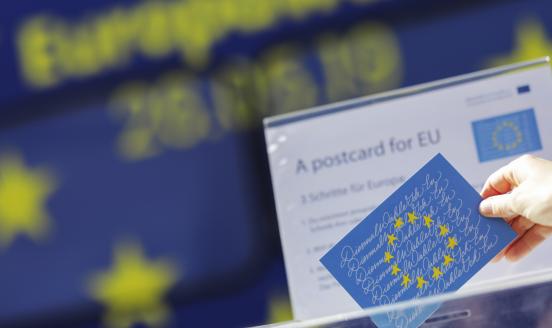The Iran nuclear deal crisis: Lessons from the 1982 transatlantic dispute over the Siberian gas pipeline
A US president taking a unilateral decision that affects European interests; European policymakers outraged at US interference in their affairs; Europ

What was the Siberian Natural Gas Pipeline project?
In the early 1980s, the Soviet Union started building the Siberian Natural Gas Pipeline (SNGP). Stretching to some 5,000 kilometres, this pipeline would be the longest in the world, and would supply France, West Germany, and Italy via Czechoslovakia.
To realise the infrastructure, the Soviet Union needed Western equipment and technology. Contracts worth around $4 billion were awarded to western European firms, and European banks provided Moscow with export credit lines at below-market interest rates.
Western European governments welcomed the construction of the pipeline for several reasons. After the oil shocks of 1973 and 1979, natural gas had become increasingly important in the European Economic Community's (EEC) energy diversification programme. Moreover, the SNGP would contribute to reducing the EEC’s reliance on the Middle East for imports of natural gas. The instability of this region could not guarantee western Europe’s energy security. Last but not least, the Euro-Siberian pipeline would help governments fight high unemployment and benefit western European industry stricken by a worldwide recession. Therefore, both the businesses and governments of western Europe supported the deal.
The US administration, by contrast, severely criticised the initiative, which, in its opinion, would assure the Soviets of a long-term constant influx of hard currency and thus give a longer life to the regime. Moreover, the US administration saw the deal as providing the Soviets with great leverage on western Europe.
What were the roots of the disagreement between western Europe and the US?
The US-European dispute over the gas pipeline deal had indeed its origins in different assessments of, and responses to, the Soviet threat.
President Reagan of the US came to power determined to restore his country’s military and economic power, its self-reliance and its leadership, so as to meet the Soviet challenge from a position of strength. Dismissing détente as a weak policy, during his first administration Reagan adopted a confrontational attitude, manifest in tough rhetoric and economic warfare – denial of further credits, limitation of exports, and widening the technological gap. The Reagan administration tried to convince the European allies to rally to these positions, but to no avail.
For western European governments, détente was not a sign of weakness, but rather the means to overcome the Cold War divide and gradually transform European relations. At the national level in the mid-1960s, and then collectively since the early 1970s, the EC member states actively pursued a policy of cooperation with the East. European détente was made of economic interdependence, cultural exchanges, political dialogue, and promotion of mutually advantageous cooperation in several fields, and aimed in the long run at engendering reforms and liberalisation of the communist regimes. In the meantime, trade and economic ties could reduce the military threat in Europe, whereas economic warfare engendering a climate of confrontation might convince the Soviet leadership to continue with military build-up and expansionism.
Overall there was no support in western Europe for US policies of economic warfare towards the Soviet Union. Western European governments would therefore continue to provide substantial support to national firms that aimed to secure business in the Soviet Union (and its allies).
How did the US policy play out?
On October 16th 1981, President Reagan imposed an embargo on all technology exports to the Soviet Union so as to delay, and eventually prevent, the construction of the pipeline.
The US administration continued to fight the pipeline project even after contracts had been signed. In December 1981, the pipeline affair got entangled with the Polish crisis. In reaction to the imposition of martial law by the Polish government in December 1981, the US administration announced economic sanctions against Poland and the Soviet Union. Among the measures, one suspended the licences for several pieces of oil and gas equipment, including pipe-layers.
Reagan announced the unilateral decision to extend the US export ban to US-controlled firms in Europe and equipment produced by European firms under US licence.
The Europeans refused to endorse a policy of sanctions against the Soviet Union. The EC foreign ministers’ joint declaration of January 4th 1982 condemned Moscow for placing serious external pressure on Poland, but stopped short of assigning the Soviets direct responsibility. In addition, the European Council of March 1982 “recognised the role which economic and commercial contacts and cooperation have played in the stabilisation and the development of East-West relations as a whole and which they wish to see continue on the basis of a genuine mutual interest.”
The Reagan administration continued to pressure the allies into line. At the G7 Summit in Versailles (June 4th-6th 1982), Reagan called for credit restrictions and a tightening of export controls within the framework of the rules of the Coordinating Committee for Multilateral Export Controls (CoCom), but he did not obtain substantial satisfaction.
Unable to rally the Europeans, on June 18th, only 12 days after the Versailles G7, Reagan announced the unilateral decision to extend the US export ban to US-controlled firms in Europe and equipment produced by European firms under US licence. This ban concerned any American-designed production processes or technologies, even those used by western European companies on western European soil to produce anything connected with the pipeline. This was designed to hit directly those western European firms involved in the gas pipeline project. Moreover, this round of sanctions was clearly intended to be retroactive: equipment already shipped to Europe was subject to embargo. The US decision affected directly more than 20 companies from West Germany, France, Italy, and Britain.
What was the western Europeans’ reaction?
The governments of Britain, France, Italy, and West Germany reacted with outrage at the US’ unacceptable interference in their foreign-policy and economic-policy options.
Helmut Schmidt, chancellor of West Germany, confirmed his government's intention to go ahead with the pipeline deal, and told the Bundestag that ''what shouldn't happen after Versailles, and as far as we are involved, will not happen (…) is a trade war with the Soviet Union, which could usher in a new cold war.'' British prime minister Margaret Thatcher denounced the sanctions in fundamental legal terms, vehemently rejecting their extraterritorial and retroactive nature. “The question”, Thatcher told the House of Commons, was “whether one very powerful nation can prevent existing contracts from being fulfilled. It is wrong that it should prevent those contracts from being fulfilled”.
Actions quickly followed these public declarations. The French government took the lead in ordering French companies to honour their contracts with the Soviets. The Italian government made clear its view that the ban should be defied. In early August, the British government decided to issue an order forbidding specific British companies from complying with the American embargo. The West German government eventually also encouraged firms to deliver. In late August the first shipments of pipeline equipment left European ports, bound for the Soviet Union, in open violation of the American embargo. By October 1982, the US administration had blacklisted 12 European companies for defying the embargo.
How was the crisis resolved?
The governments of Britain, France, Italy, and West Germany did react individually, but not separately: they carefully coordinated their response through the EEC.
The European Council was used to emphasise the western European governments’ stance. The Brussels European Council of June 28th and 29th 1982, in the wake of Reagan’s unilateral action, called for ‘a genuine and effective dialogue [to] take place between the United States and the Community in areas of possible disputes’. As the US policy threatened the Community’s interests in East-West trade, the European Council agreed that representatives of the Community should immediately contact the responsible authorities in the United States to see if an acceptable solution could be found.
This coordinated, systematic response of the EEC made a difference. Facing strong opposition, Reagan backed down
The EEC Council of Ministers adopted a two-track approach to transatlantic problems: “dialogue at the political level, and a firm attitude on technical files”.[1] The Council of Ministers meeting of July 19th and 20th addressed the pipeline as only one element of the larger trade dispute, and as a potential legal issue.
In handling the embargo issues, the British, French, Italian, and West German governments asked the assistance of the EEC Commission, which prepared reports and worked out common positions on all the technical aspects of the pipeline conflict. Beside individual governments’ protests, the EEC issued its own public statements and official communiqués.
The Community was a principal actor in the legal quarrels that unfolded in 1982, with some European companies affected by the US measures deciding to mobilise the full political weight of the EEC behind their protests. On July 14th the EEC Commission delivered to Washington a formal protest in legal and commercial terms, though it did mention that political strains might result from the American action. On August 12th, the EEC Commission sent a lengthy legal memorandum to the US Departments of State and Commerce to challenge the retroactive nature of the sanctions and call for the withdrawal of the pipeline sanctions.
This coordinated, systematic response of the EEC made a difference. Facing strong opposition, Reagan backed down and lifted the embargo on November 14th 1982. The following Copenhagen European Council in December “note[d] with satisfaction the EC/US arrangements on steel and the lifting of United States sanctions related to the Siberian pipeline”. Although symbolic, this statement shows how the European Council had come to be considered useful in maximising the western European impact on the transatlantic debate.
What does the SNGP tell us for the current Iranian crisis?
Western Europeans had a different vision of East-West relations, and clear interests at stake. Western European governments vigorously opposed the US stance on the SNGP, and used the EEC’s expertise in trade and legal disputes to beef up their action. The view of western Europeans prevailed: the US backed down within five months. The pipeline’s construction was finished in 1984 as planned.
There are, of course, some differences between the two cases. First, the context. The Siberian gas pipeline crisis concerned Europeans even more directly than the Iranian issue: the crisis was taking place on their own territory. Second, the US administration of 1982 was much more sophisticated and geo-strategically literate than the present one, and had articulated a clear and detailed international strategy. Third, while is true that the Reagan administration acted unilaterally, it did so only after having tried, in different forums, to rally western European allies’ support for a confrontational policy towards the Soviet Union. On the contrary, the Trump administration took its decision – which most commentators saw coming – without any consultation, nor any alternative being tried beforehand.
Set aside these obvious differences, the EU institutions and Member States can draw two important lessons from the Siberian gas pipeline crisis. First, they should realise that the EU does have a track record of successful opposition to US unilateralism, and should not shy away from taking a firm and resolute stance to counteract US decisions. Second, the EU can use all diplomatic and legal means to corner the US, which acted against international law. International law must be upheld, and the EU can confidently take the lead in that fight.
[1] Europe, 21 July 1982, p. 5.



